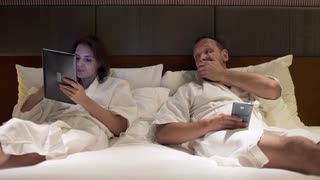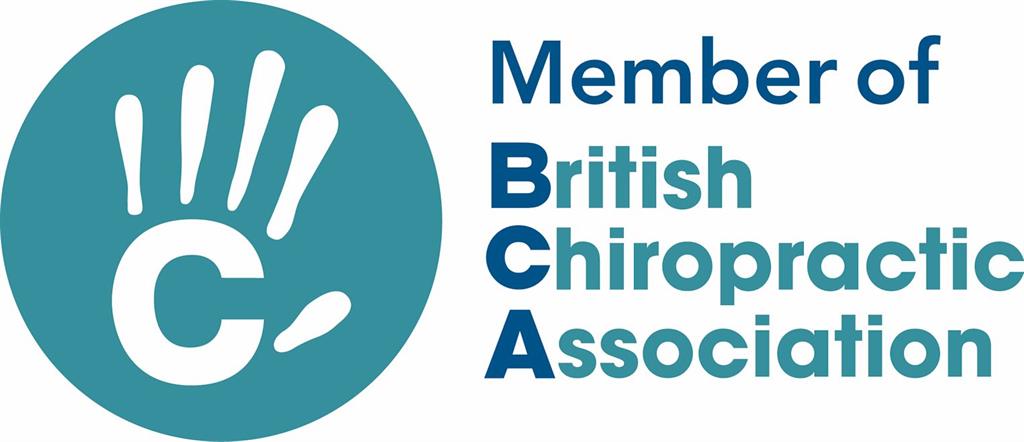
A new report by Ofcom has found that one in three adult internet users has opted for a digital detox. As well as a detox, being smart when using tech can ease some of the physical issues that can come up.
For example, one way to help get a good balance of technology use is to consider the benefits of making your bedroom a tech free zones, as this could lead to improved quality of sleep and better posture, thus reducing physical effects of technology use on the back and neck.
In 2014, research from the British Chiropractic Association (BCA) found that more than half (54%) of the UK population were are using mobile phones in bed and nearly half (49%) confessed to using a laptop or a tablet at bedtime.
Technology has become integral to our lives but when it comes to bedtime it is having negative repercussions on our lifestyles and bodies. When people use laptops or mobile phones in bed, they tend to forget their posture, hunch over the screen and leave their spine unsupported which can damage posture and cause back or neck pain.
The BCA's research in 2014 showed that nearly half (48%) of people can’t sleep due to back or neck pain but technology could actually be exacerbating the problem. Many of my patients who can’t sleep will resort to a laptop or a mobile phone to help them get to sleep, for example to watch a film, but the reality is this could further prevent them from sleeping.
The light given off by screens stimulates the brain making us feel more awake and what’s more, when people use technology in bed, they often don’t pay attention to their postures which can cause pain and keep them awake. We’re urging people to make their bedrooms tech-free zones and see what benefits can come from this.
THE BCA’S TOP TIPS FOR MAKING YOUR BEDROOM A TECH-FREE ZONE...
• Check it out then pack it in: If you find yourself tempted to check your emails one last time before bed, try doing this in the living room or the kitchen then switch off your laptop or mobile phone and pack the device away in your bag ready for work the next morning.
• Keep the TV out of sight, out of mind: Try and avoid having a television in your bedroom as if it’s not there, you won’t be tempted to watch it. Instead, try to limit yourself to having a television only in communal areas of your home.
• Forget the mobile phone dock, use an alarm clock: With mobile phones now being integral to our lives, try not to rely on it to wake you up too. Invest in a cheap but effective old-fashioned alarm clock which means that you don’t need to keep you mobile phone in the bedroom. If your partner struggles to switch off it could be the ideal stocking filler.
• Using tech in bed? Don’t forget your head: Looking down at screens in bed means your neck won’t be supported and the weight of your head leaning forward will put pressure on your back, which may cause back or neck pain. If you are using tech in bed, make sure your back is supported with a pillow and the device is propped up so it’s at eye level.
AND WHEN YOU ARE USING TECH DURING THE DAYTIME...
• Be aware of your posture when using mobile devices on the go, don’t hunch over small screens and ensure you are never in the same position for a prolonged period.
• When sitting in front of your PC or laptop, sit in a chair that provides full support for your spine and make sure your shoulders, hips and knees face the same direction.
• Your seat should be adjusted so that your feet are flat on the ground and knees bent, but with a slope from your hips to your knees. You should end up with your hips higher than your knees and your eyes level with the top of the computer screen. You may need to put the screen on a stand, book or ream of paper to bring it to the right height.
• The head is a heavy weight, so sitting with it forward of your body puts unnecessary strain on your neck and back, so always sit with your head directly over your body.
• Avoid sitting in the same position for more than 40 minutes, less if possible. When you do take a break, walk around and stretch a little.
• If you carry a laptop use a rucksack design laptop case, carry it on both shoulders and adjust the straps so that the bag is held close to your back.
• Try out new gadgets before you buy them to make sure they’re comfortable to use and spend time setting them up in a way that works well for you.
• Don’t carry too many items in your bag all the time. Get in the habit of only packing what you need each day and avoid ‘doubling up’ on your tech (i.e. camera and smartphone) if at all possible.
• When using your mobile, smartphone, laptop or tablet whilst sitting down, including on your commute, take the time to break position on a regular basis and stretch your arms, shrug your shoulders and move your fingers around as this helps to keep the muscles more relaxed.
• Avoid going online and texting whilst walking; your lack of concentration could cause an accident!
Good luck!
For example, one way to help get a good balance of technology use is to consider the benefits of making your bedroom a tech free zones, as this could lead to improved quality of sleep and better posture, thus reducing physical effects of technology use on the back and neck.
In 2014, research from the British Chiropractic Association (BCA) found that more than half (54%) of the UK population were are using mobile phones in bed and nearly half (49%) confessed to using a laptop or a tablet at bedtime.
Technology has become integral to our lives but when it comes to bedtime it is having negative repercussions on our lifestyles and bodies. When people use laptops or mobile phones in bed, they tend to forget their posture, hunch over the screen and leave their spine unsupported which can damage posture and cause back or neck pain.
The BCA's research in 2014 showed that nearly half (48%) of people can’t sleep due to back or neck pain but technology could actually be exacerbating the problem. Many of my patients who can’t sleep will resort to a laptop or a mobile phone to help them get to sleep, for example to watch a film, but the reality is this could further prevent them from sleeping.
The light given off by screens stimulates the brain making us feel more awake and what’s more, when people use technology in bed, they often don’t pay attention to their postures which can cause pain and keep them awake. We’re urging people to make their bedrooms tech-free zones and see what benefits can come from this.
THE BCA’S TOP TIPS FOR MAKING YOUR BEDROOM A TECH-FREE ZONE...
• Check it out then pack it in: If you find yourself tempted to check your emails one last time before bed, try doing this in the living room or the kitchen then switch off your laptop or mobile phone and pack the device away in your bag ready for work the next morning.
• Keep the TV out of sight, out of mind: Try and avoid having a television in your bedroom as if it’s not there, you won’t be tempted to watch it. Instead, try to limit yourself to having a television only in communal areas of your home.
• Forget the mobile phone dock, use an alarm clock: With mobile phones now being integral to our lives, try not to rely on it to wake you up too. Invest in a cheap but effective old-fashioned alarm clock which means that you don’t need to keep you mobile phone in the bedroom. If your partner struggles to switch off it could be the ideal stocking filler.
• Using tech in bed? Don’t forget your head: Looking down at screens in bed means your neck won’t be supported and the weight of your head leaning forward will put pressure on your back, which may cause back or neck pain. If you are using tech in bed, make sure your back is supported with a pillow and the device is propped up so it’s at eye level.
AND WHEN YOU ARE USING TECH DURING THE DAYTIME...
• Be aware of your posture when using mobile devices on the go, don’t hunch over small screens and ensure you are never in the same position for a prolonged period.
• When sitting in front of your PC or laptop, sit in a chair that provides full support for your spine and make sure your shoulders, hips and knees face the same direction.
• Your seat should be adjusted so that your feet are flat on the ground and knees bent, but with a slope from your hips to your knees. You should end up with your hips higher than your knees and your eyes level with the top of the computer screen. You may need to put the screen on a stand, book or ream of paper to bring it to the right height.
• The head is a heavy weight, so sitting with it forward of your body puts unnecessary strain on your neck and back, so always sit with your head directly over your body.
• Avoid sitting in the same position for more than 40 minutes, less if possible. When you do take a break, walk around and stretch a little.
• If you carry a laptop use a rucksack design laptop case, carry it on both shoulders and adjust the straps so that the bag is held close to your back.
• Try out new gadgets before you buy them to make sure they’re comfortable to use and spend time setting them up in a way that works well for you.
• Don’t carry too many items in your bag all the time. Get in the habit of only packing what you need each day and avoid ‘doubling up’ on your tech (i.e. camera and smartphone) if at all possible.
• When using your mobile, smartphone, laptop or tablet whilst sitting down, including on your commute, take the time to break position on a regular basis and stretch your arms, shrug your shoulders and move your fingers around as this helps to keep the muscles more relaxed.
• Avoid going online and texting whilst walking; your lack of concentration could cause an accident!
Good luck!


 RSS Feed
RSS Feed













